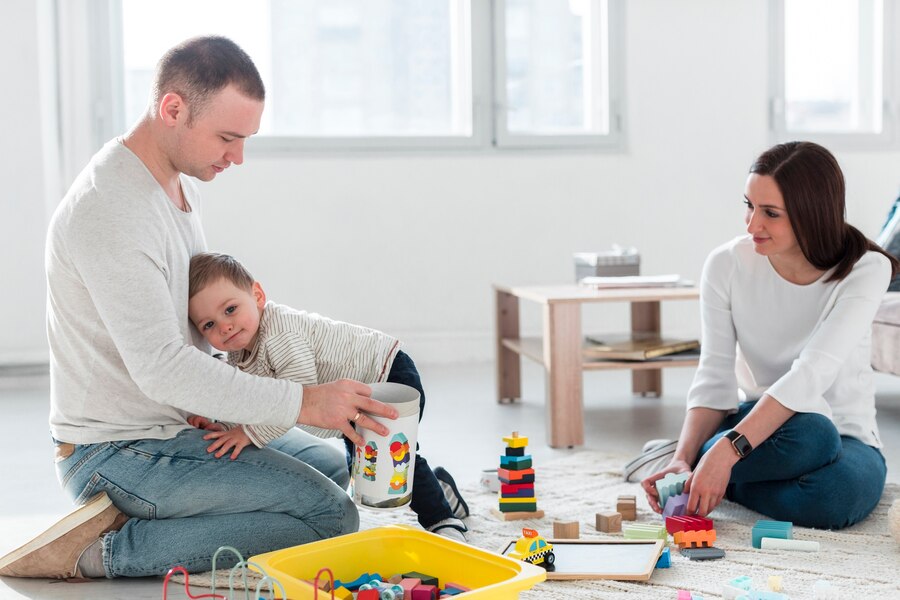A strong parent-child relationship is the foundation for a child’s emotional well-being and development. It creates a sense of security and trust that helps children navigate life’s challenges. Building and maintaining this relationship requires time, effort, and a lot of love. Here are some key strategies to help you foster a strong bond with your child.
1. Communicate Openly and Honestly:
Effective communication is the cornerstone of any strong relationship. Encourage open and honest dialogue with your child. Listen actively and empathetically to what they have to say, and share your thoughts and feelings with them in return.
Example: Set aside time each day to talk with your child about their day. Ask open-ended questions like, “What was the best part of your day?” or “Is there anything you’re worried about?” This shows your child that you value their experiences and opinions.
2. Spend Quality Time Together:
Quality time is essential for building a strong parent-child relationship. Engage in activities that your child enjoys and that allow you to connect on a deeper level. This could be anything from playing games, cooking together, or simply going for a walk.
Example: Plan a weekly family game night or a special outing. These shared experiences create lasting memories and strengthen your bond.
3. Show Unconditional Love and Support:
Children need to feel loved and supported no matter what. Show your child that your love is unconditional by offering consistent support and encouragement. Celebrate their successes and offer comfort during their struggles.
Example: When your child makes a mistake, reassure them that everyone makes mistakes and that you love them no matter what. Help them learn from the experience and encourage them to try again.
4. Establish Trust and Consistency:
Trust is built through consistency and reliability. Be consistent in your words and actions, and follow through on your promises. This helps your child feel secure and understand that they can depend on you.
Example: If you promise to attend your child’s school play, make sure you are there. Keeping your word shows your child that you are dependable and trustworthy.
5. Encourage Independence and Responsibility:
Allowing your child to develop independence and responsibility is crucial for their growth. Provide opportunities for them to make decisions and take on responsibilities appropriate for their age.
Example: Give your child age-appropriate chores or let them choose their own outfits for school. These small responsibilities help them build confidence and a sense of independence.

6. Practice Positive Discipline:
Discipline is necessary, but it should be practiced positively and constructively. Set clear expectations and consequences, and explain the reasons behind them. Focus on teaching rather than punishing.
Example: If your child misbehaves, calmly explain why their behavior was unacceptable and what they can do differently next time. Use time-outs or loss of privileges as consequences, and always follow up with a discussion about the behavior.
7. Be a Role Model:
Children learn by observing their parents. Model the behavior you want to see in your child by demonstrating kindness, respect, and empathy. Your actions speak louder than words and will have a lasting impact on your child.
Example: If you want your child to be respectful, make sure you treat others with respect. Show empathy by listening and responding thoughtfully to others’ concerns.
8. Support Their Interests and Hobbies:
Encourage your child’s interests and hobbies, even if they differ from your own. Show enthusiasm and support for their passions, and provide the resources they need to pursue them.
Example: If your child loves drawing, provide them with art supplies and praise their creations. Attend their art shows or display their artwork at home to show your support.
Building a strong parent-child relationship takes time, effort, and a lot of love. By communicating openly, spending quality time together, showing unconditional love, establishing trust, encouraging independence, practicing positive discipline, being a role model, and supporting their interests, you can create a deep and lasting bond with your child. Remember, it’s the small, everyday moments that often have the biggest impact. Be present, be patient, and enjoy the journey of parenting.


